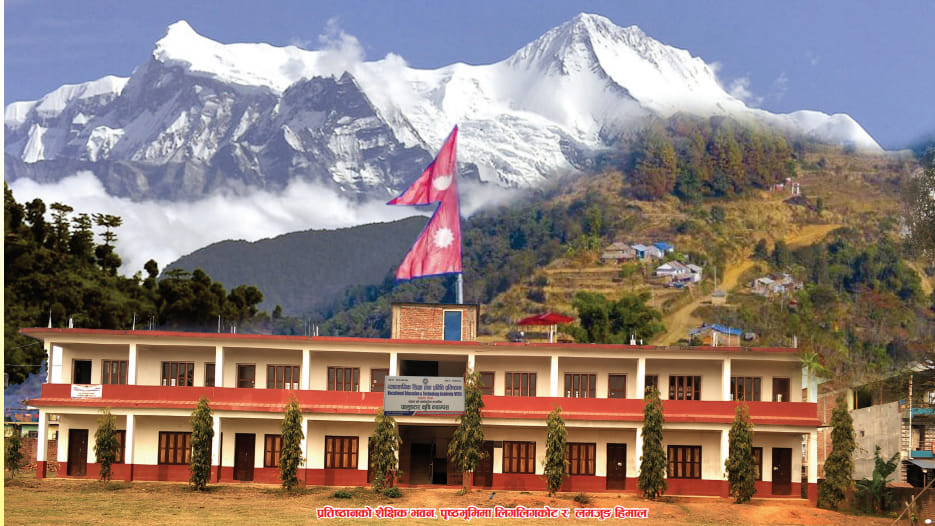Overview
Diploma in Agriculture (Animal Science) – Vocational Education & Technology Academy (VETA), Gorkha
The Diploma in Agriculture (Animal Science) offered by Vocational Education & Technology Academy (VETA) is a three-year program developed under the national curriculum approved by the Council for Technical Education and Vocational Training (CTEVT).
Located in Palungtar-10, Mirkot, Gorkha, this course is designed for SEE graduates seeking skill-based livestock production and animal health education. With 40 seats available, the program supports regular and scholarship-based admission, helping to create trained professionals capable of contributing to Nepal’s livestock sector.

Curriculum Details
The curriculum includes both theoretical instruction and practical training. It covers major subject areas such as:
-
Animal anatomy and physiology
-
Livestock breeding and genetics
-
Animal nutrition and feeding practices
-
Dairy and poultry production
-
Veterinary pathology and pharmacology
-
Disease prevention and basic clinical practices
-
Farm management and animal recordkeeping
-
Agricultural economics related to livestock
Each academic year is divided into semesters, with regular internal evaluations and a final examination conducted under CTEVT.
Objectives
The main objectives of this program are to:
-
Build a foundational understanding of animal science
-
Prepare mid-level technicians for livestock-related fields
-
Develop awareness of animal welfare and veterinary ethics
-
Support sustainable livestock farming practices
-
Equip students with practical skills relevant to both the public and private sectors
Scope
Graduates of this course can explore professional roles across several fields. The scope includes:
-
Animal health technician roles in the government and private sectors
-
Employment at veterinary hospitals and agricultural development offices
-
Technical support roles in livestock farms and feed companies
-
Opportunities for higher education in veterinary or animal sciences
-
Self-employment in livestock-related enterprises
Learning Outcomes
By the end of the program, students are expected to:
-
Identify and diagnose common livestock diseases
-
Apply basic veterinary treatment and preventive care
-
Assist in farm operations, including feeding, breeding, and monitoring
-
Maintain records and reports related to animal health
-
Support vaccination and awareness programs in rural areas
Skill Development Modules
The course includes practical modules such as:
-
Field practice in livestock farms
-
Laboratory-based sessions on animal diagnostics
-
Hands-on training in vaccination and treatment
-
Community outreach projects under supervision
-
Final year project report on livestock case studies
Teaching Methodology
Teaching methods include classroom instruction, group discussions, lab sessions, and field practice. Instructors use interactive tools, case-based examples, and site visits to encourage applied learning. Guest sessions from veterinary professionals are arranged to provide real-world exposure.
Admission Requirements
-
Minimum academic qualification: SEE passed
-
Entrance examination: Mandatory test administered by CTEVT
-
Intake capacity: 40 students
-
Duration: 3 years
-
Medium of instruction: Nepali with technical English usage
-
Selection is based on merit and reservation guidelines set by CTEVT
Career Opportunities
Graduates of this program are eligible for various employment or entrepreneurial paths:
-
Assistant veterinary technician
-
Livestock supervisor
-
Animal health field staff
-
Dairy or poultry farm technician
-
Livestock feed consultant
-
Community livestock promoter
These roles are often available in local municipalities, provincial ministries, NGOs, and private companies.
Scholarships and Financial Aid
The institution reserves 4 scholarship seats under CTEVT's scholarship policy. Selection is based on reservation categories such as gender, ethnicity, and economic status. CTEVT’s official decision determines the fee structure, which remains uniform across institutions.
Why Choose This Course?
The course provides students with hands-on experience in real agricultural settings, helping them build the technical skills necessary for Nepal’s livestock development sector. With job-relevant training and accessible tuition policies, this program opens practical career paths for rural and semi-urban youth.
Conclusion
The Diploma in Agriculture (Animal Science) at VETA, Gorkha, allows SEE graduates to receive skill-based, field-oriented education in livestock health and production. With strong curriculum support from CTEVT, the course contributes to professional development and agricultural sustainability.

















